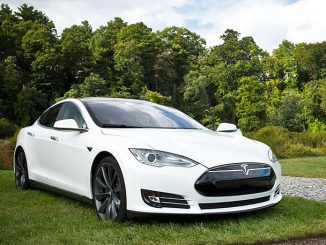
Investors who put their money into major US exchanges have seen impressive returns since fall 2018. The S&P 500 (SPY), Invesco QQQ Trust (QQQ) ETF, whose performance continues to rank it among the market’s elite, and Dow Jones (DJA) have returned 48.3%, 81.6% and 27.3% respectively.
But while the gains from investors in the major US indices have been great since 2018, investors could have been much better off betting on the broader electric vehicle (EV) space.
Just look at Tesla (NASDAQ:TSLA). Since its $17 IPO in 2003, the company’s share price had jumped by more than 4,000% by June 2020. That’s not a typo: 4,000%. Granted, there have been some serious bumps in the road for the name, but its overall trajectory is indicative of the massive potential that the EV technology has.
Speaking of bumps; longs that held Tesla shares following the fall 2018 announcement of the SEC suing the company’s CEO Elon Musk for securities fraud and accusing him of making via Twitter (NYSE:TWTR) “false and misleading” statements about taking the company private at a specified purchase price — $420 a share/$82 billion valuation, including debt — all the while he didn’t allegedly have the funding secured to do so.
Following the SEC’s announcement, shares of Tesla nosedived, printing at the time the tape 30% below their 52-week high of $387.50.
Returns on Tesla since 2018
Following Musk’s controversial and market-moving tweet, Benzinga’s Henry Khederian notes that based on a Sept. 27, 2018 TSLA price of $52.11, a $100 invested would today be worth $1,608.69. a whooping a return of 1508.69%.
Price Action
Tesla shares lost one point, or 0.12%, by the close of trading Friday and changed hands at $838.29 each.
- Bulenox: Get 45% to 91% OFF ... Use Discount Code: UNO
- Risk Our Money Not Yours | Get 50% to 90% OFF ... Use Discount Code: MMBVBKSM
Disclaimer: This page contains affiliate links. If you choose to make a purchase after clicking a link, we may receive a commission at no additional cost to you. Thank you for your support!


